Croatian Returnee Reflections: Eugene Brcic Jones, from Sydney to Zagreb
September 13, 2022 - Whisper it quietly, but more and more people are relocating to Croatia from the diaspora. In a new TCN series, we meet them to find out how they are faring, and what advice they have for others thinking of making the switch. Next up Eugene Brcic Jones, who moved from Sydney to Zagreb.
My name is Eugene Brcic Jones, my parents migrated to Australia in 1969 and I was born in Sydney. I’m probably an entrepreneur, but I’m still waiting to cash in on some ventures like a hotel and resort ordering and payments app RoomOrders, or a self-diagnostic kit for viruses, VIBAC. I’m also going to try and build prefab villas on the island of Ugljan if I don’t get ripped off by the Chinese. Prior to doing all these lofty pursuits, I was a business consultant and longtime journalist.

1. You made the switch to Croatia. Tell us a little about the decision process and how long it took for you to get on the plane?
I moved back to Zagreb, Croatia in 2017 with my Aussie wife Michelle, who has a Ukrainian and British background, and two little girls Eden and Emerson. I had previously lived in Croatia during the 90’s war and early 2000s, so it was a return to the old haunts.
We grew tired of the mortgage rat race and wanted to buy back time and a more substantial social life for our young family. We went on a long holiday two years before making the move, travelling all over the place to fall in love with the idea, so there was some leg-work, before coming. However, the main ingredient was developing an infatuation with what we saw and wanting to experiment with a new life.
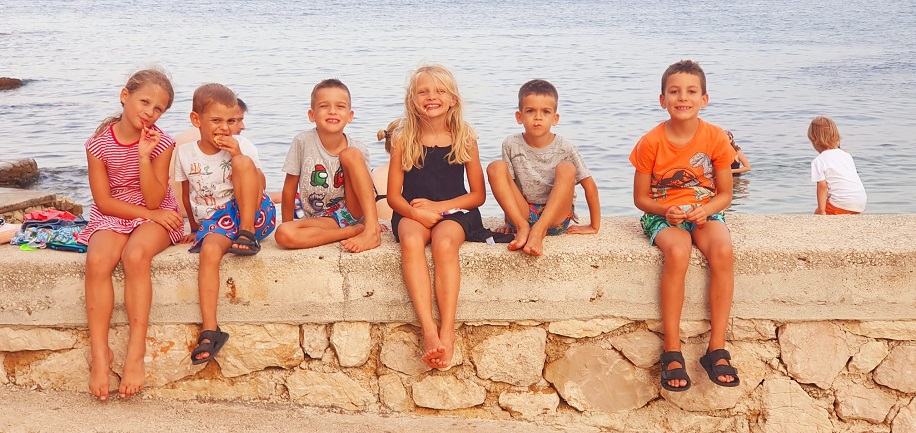
2. What did your family and community back home think of your decision at the time?
They thought we were bonkers and would be back in less than a year. It’s now over 5 years and we seem to be adjusted to this extraordinary place. Luckily, other nutters felt the same and the community of fruitcakes is growing fast. I’m clinging to the notion that over time, we will be declared visionaries or at least pioneers.
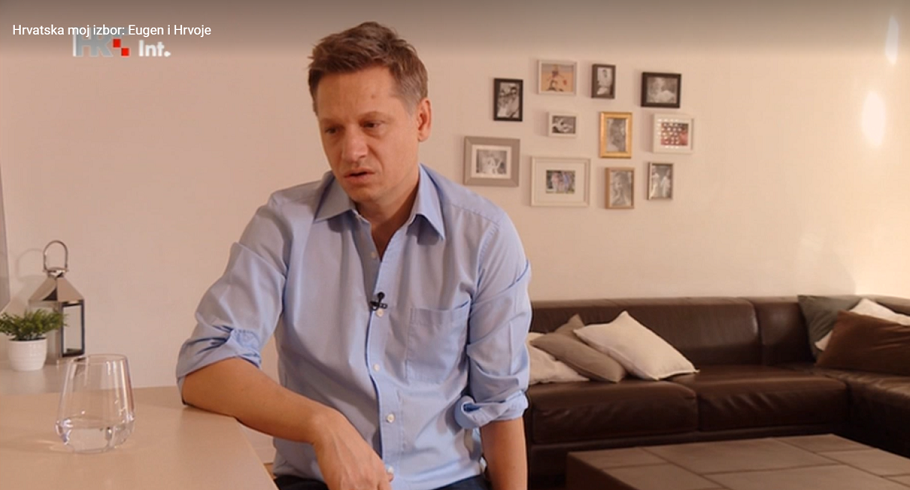
3. Where did you get your information about the realities of Croatia prior to coming?
I had previously lived here, I was a foreign correspondent for the Associated Press for many years, so I got to know and understand the harsh, yet quirky mentality. I had a fair idea of the pitfalls.
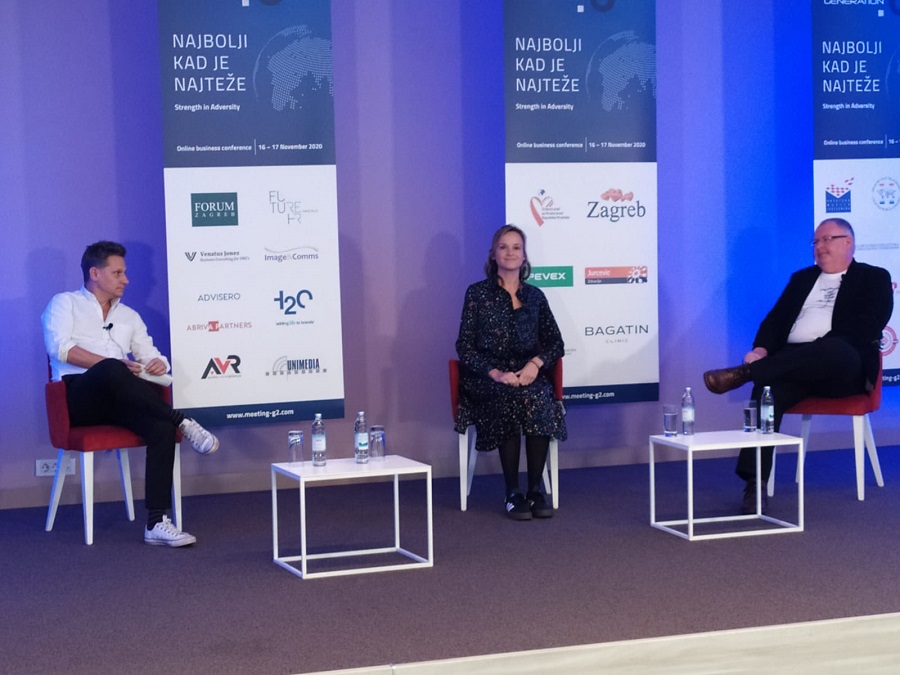
4. What were you most nervous about making the switch? What was your biggest fear, and what was the reality of what you found?
Money. We didn’t want our adventure to make us bankrupt and starve to death. We know work is hard to come by in Croatia, so we had to devise a better plan than a 9 to 5 job. The kids are small, so we knew they would fit in easily, but we needed to be financially secure and that was a major concern that grated on our nerves.
Our biggest fear was that we would not find out footing with finances and that we would bleed money. Of course, that’s exactly what happened. Our tenant in Australia left prematurely and we were vacant for five months, making us sh#t our pants with mortgage repayments from our savings rather than from rental income. To make matters worse, I planned some remote work before slipping into a role with potential business partners and all those opportunities also went pear-shaped.
The reality is that Croatia is a tough place to wing it and even well-laid-out plans can easily go up in smoke. On the other hand, it teaches you to live spontaneously, day-by-day, like the rest of the folk. I still don’t understand how they survive or where their money comes from, especially loads of people driving fancy cars and trendy labels.
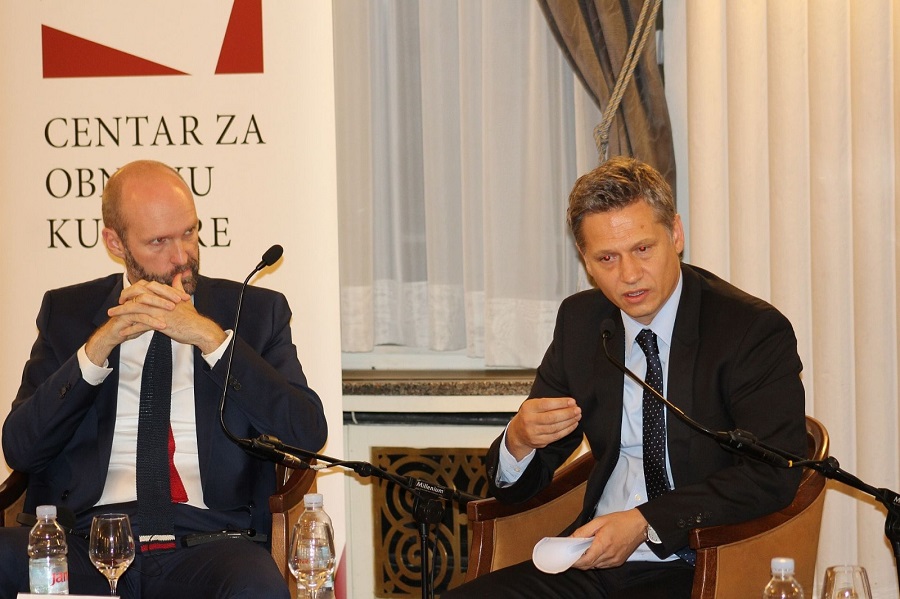
5. Think back to the time before you arrived. What were your perceptions about Croatia and how were they different from the reality you encountered?
My perception was that everybody here really knows how to live, while we from abroad only really know how to work. My reality was exactly that. They make the most of what they got, which usually comes down to sitting down for a coffee and relaxing, having a smoke or two.
Sure, nobody in the world whinges and whines like Croatians, but the mystery remains, how the bloody hell do they live off their meager incomes? It’s almost a form of art – making just enough money to enjoy the simple pleasures of life.
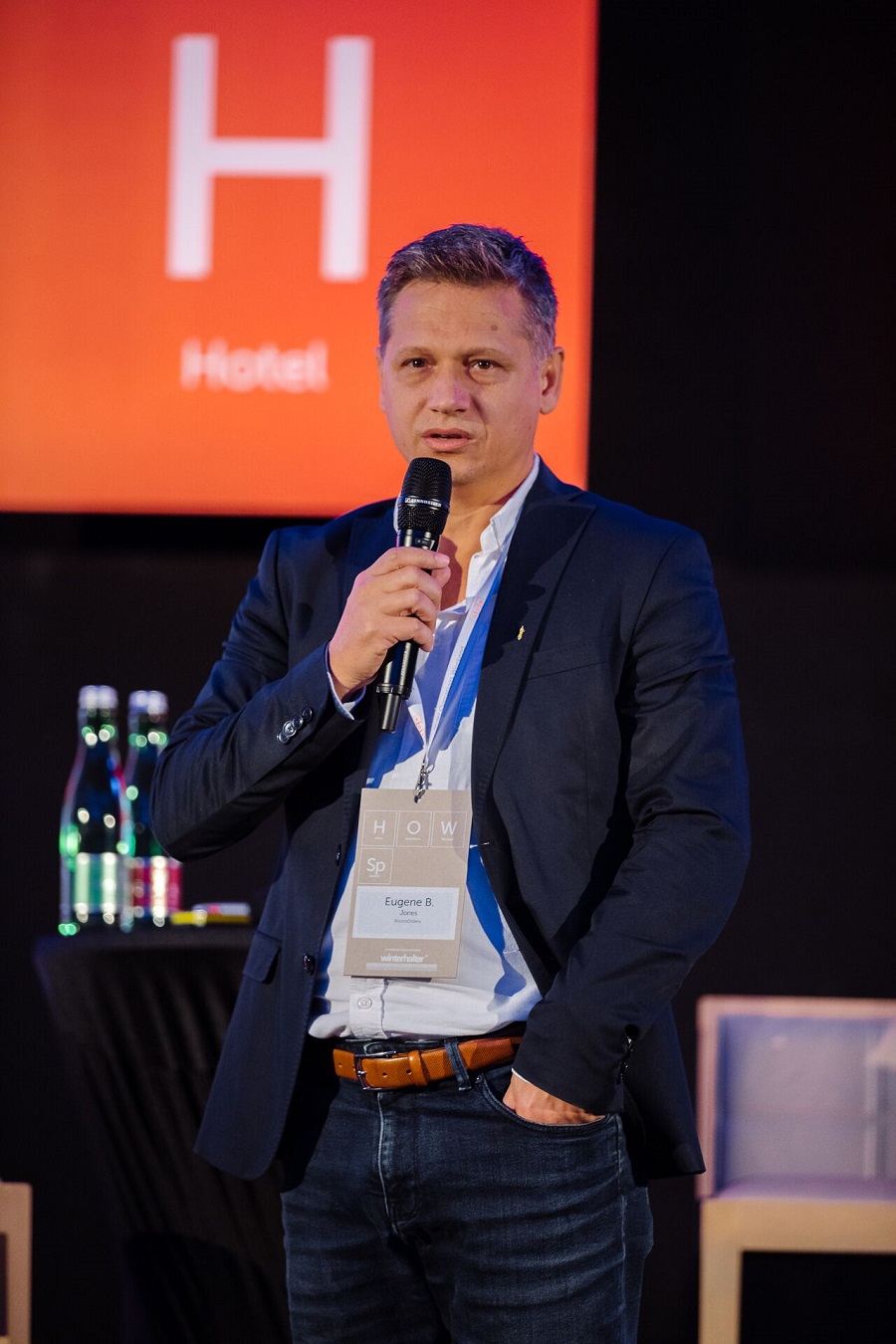
6. You are still here, so obviously the pros outweigh the cons. Tell us about some of the things that you love about being in Croatia, as well as some of the things you don't like.
I love that Croatia is moving forward despite all the corruption and complaining. It’s the perfect place to raise a family and socialize often with friends. It’s safe and has the ideal amount of tradition and contemporary sophistication. I personally love spending winter in Zagreb and skiing with friends and then spending summer again with friends at the seaside. In between there are little getaways, to break the routine. The weather is stable, cold in winter, hot in summer, warm in spring, cool in autumn. The ultimate feeling is the daily relaxation with coffee and conversation. No stress.
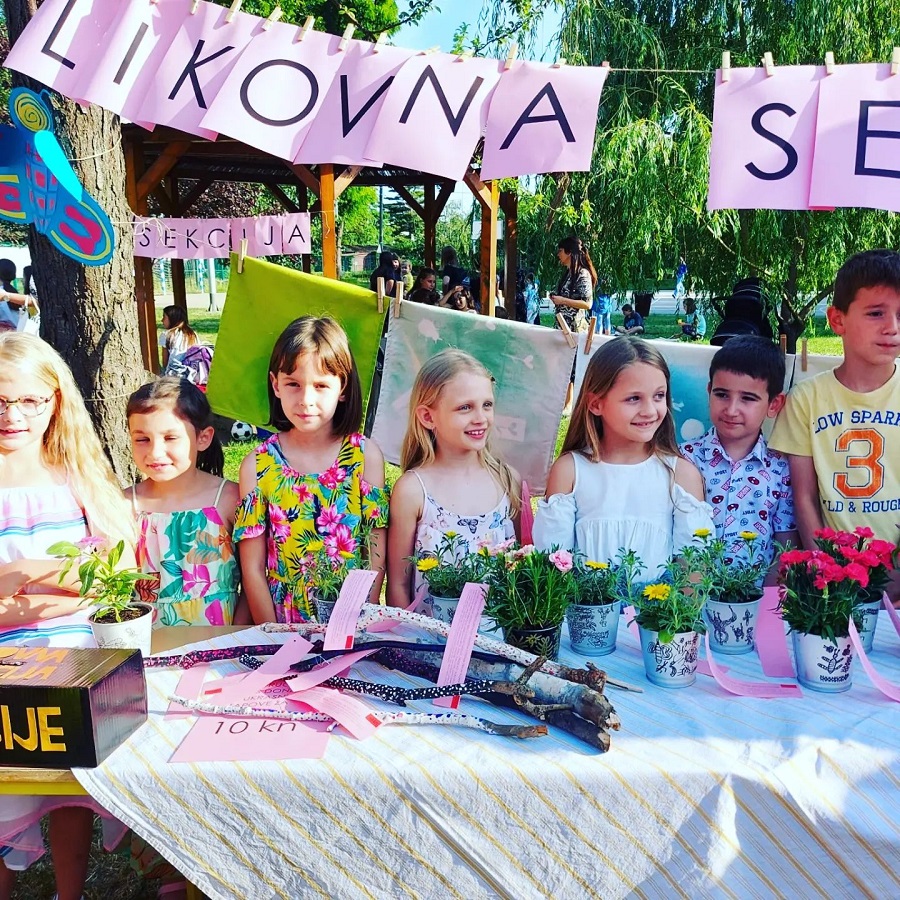
7. What advice do you have for others thinking about making the move from the diaspora?
Don’t be a tight-arse, chicken. Take the plunge. Take a sabbatical. If it doesn’t work out after a year, just go back, you will lose nothing, and gain everything. People should take a lesson out of the pandemic, don’t just be alive, live.
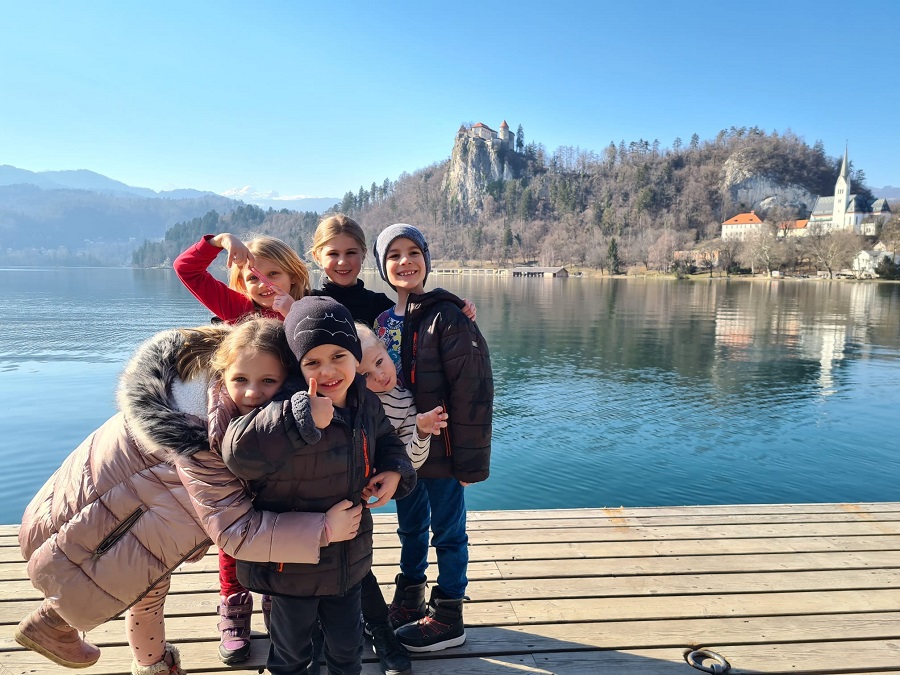
8. How do you think Croatia can better assist those who are looking to return to the Homeland?
Forget about such illusions. Croatia cannot even help itself. It’s a basket case. There are some initiatives like remote working visas for digital nomads that stand out from the malaise. Regretfully, the country and its bureaucracy are still too corrupt and inept to formulate campaigns to benefit everyone with Western money and people. The EU is helping develop structure and functional institutions through various programs and funding, but I would focus on keeping your pants on because the government and crooks will try and take your shirt off if you come here like a naïve deer stuck in the headlights.
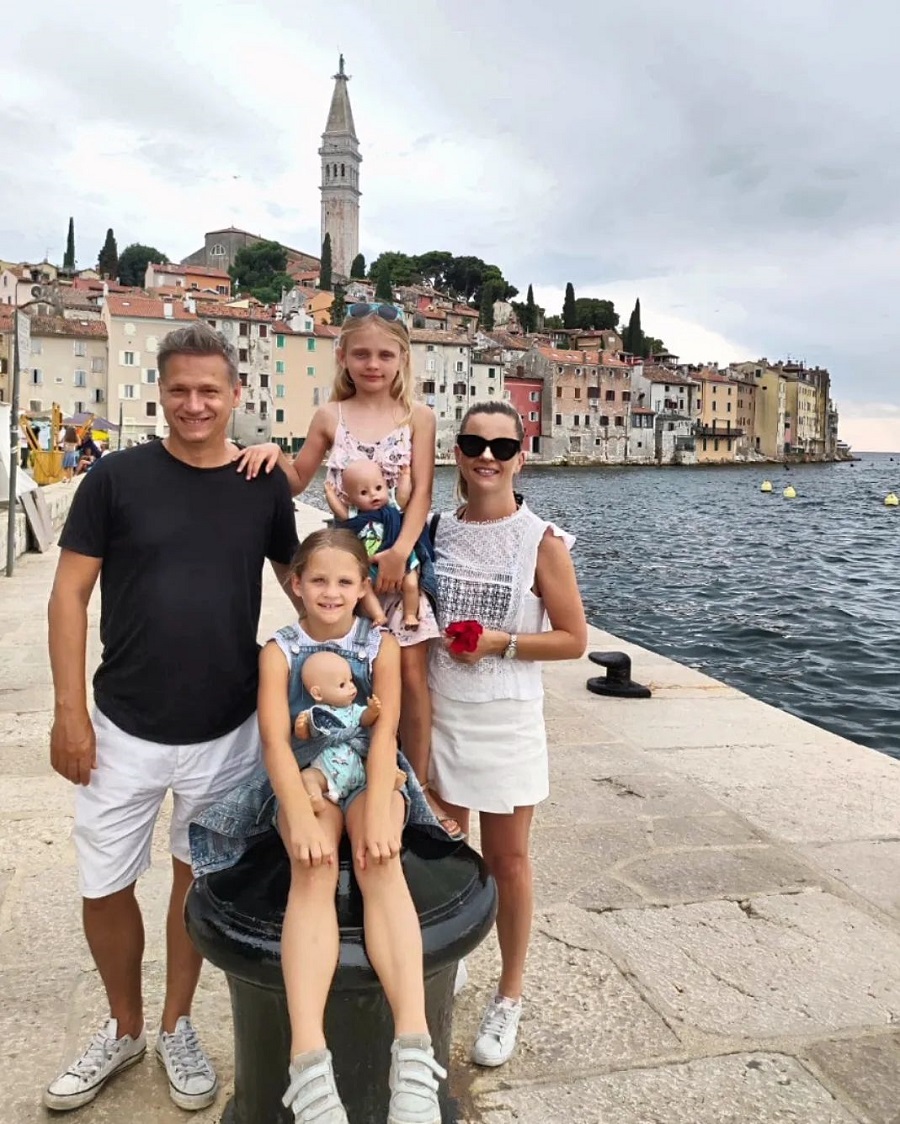
****
Thanks Eugene, and good luck with venatusjones.com roomorders.com
You can follow more stories in the Croatian Returnee Reflections series in our dedicated TCN section.
Would you like your returnee story - positive or negative - to be featured in this series? Contact This email address is being protected from spambots. You need JavaScript enabled to view it. Subject Returnee.
****
What is it like to live in Croatia? An expat for 20 years, you can follow my series, 20 Ways Croatia Changed Me in 20 Years, starting at the beginning - Business and Dalmatia.
Follow Paul Bradbury on LinkedIn.
Croatia, a Survival Kit for Foreigners will be out by Christmas. If you would like to reserve a copy, email This email address is being protected from spambots. You need JavaScript enabled to view it. Subject 20 Years Book
Croatian Returnee Reflections: Toni Bakovic, from Derby UK to Split
September 12, 2022 - Whisper it quietly, but more and more people are relocating to Croatia from the diaspora. In a new TCN series, we meet them to find out how they are faring, and what advice they have for others thinking of making the switch. We start with Toni Bakovic, who moved from Derby to Split.
My name is Toni Bakovic, I'm 24, born and raised in Split, Croatia; previously living for 5 years in Buxton/Manchester/Derby in England, I have decided to voluntarily take "the short end of the stick," as many would see it, and move back to Croatia from the UK. Since then I shifted from the Tourism Industry and odd jobs in England, into Entrepreneurship in Croatia and currently am at the cusp of my first webshop launch Textor.hr
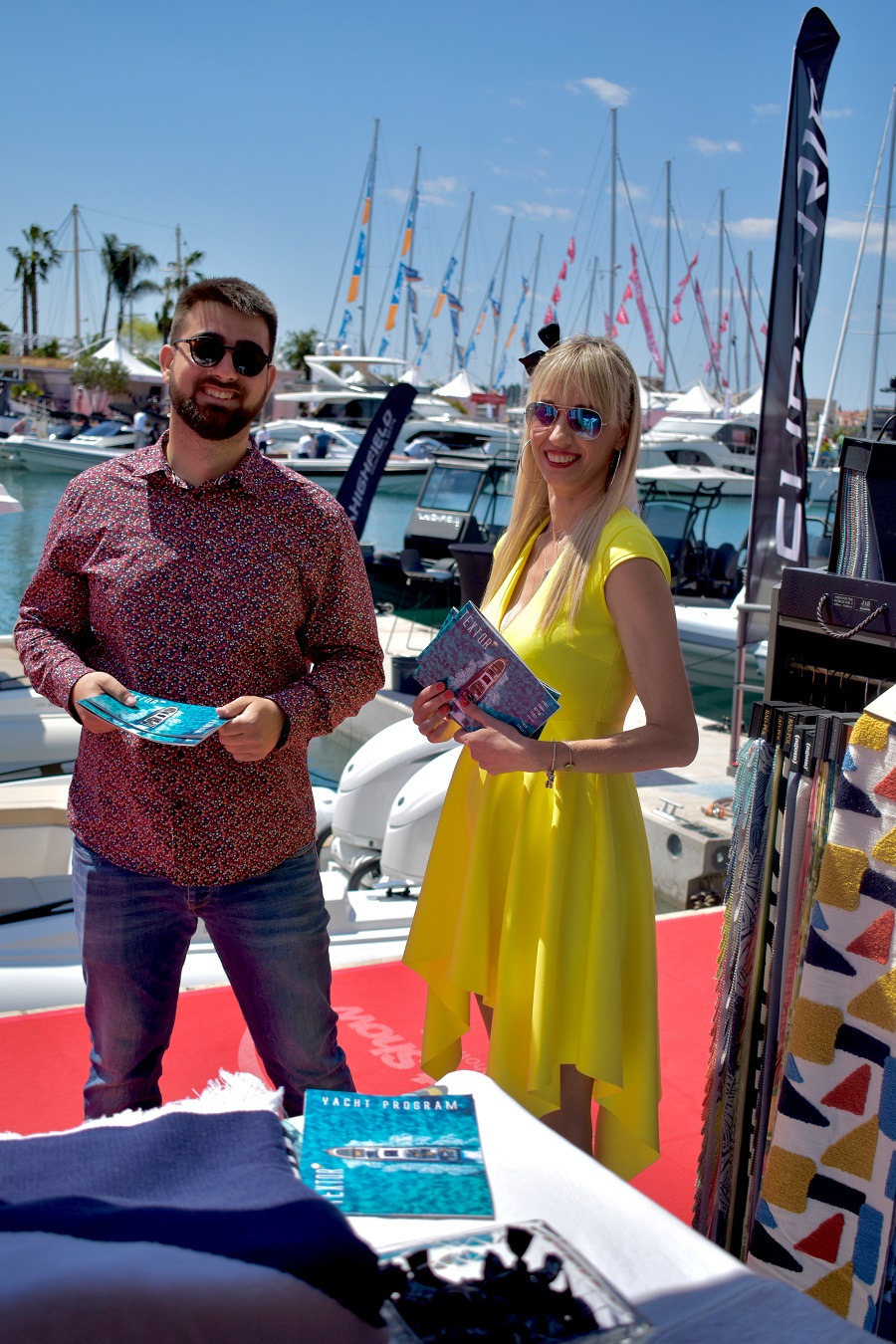
1. You made the switch to Croatia. Tell us a little about the decision process and how long it took for you to get on the plane?
I think this was the most difficult part, to start, after finishing my BA in Tourism Management at the University of Derby, I continued right after for my Master's degree in Business Management (2020) while working odd jobs, and by doing so, I was getting a couple of interesting job offers from abroad to build on and jump-start my career. This path felt correct, just finished Uni, got a job waiting in my field, and everyone else is following those steps, but... something was missing, I can't put my finger on it, maybe it was the Corona crisis, maybe I didn't like the process being logical and straight-forward, maybe I was bad at decision making, but I decided to go back and see what was waiting for me business-wise back home. After I booked it, I did have second thoughts, especially financial thoughts, every price of every item around me is blowing up (due to Covid), and I am moving back to a country where I will be earning a lot less than I would be somewhere else, but as I said, I had a pull back home and wanted to try it, so I didn't linger on my thoughts that much.
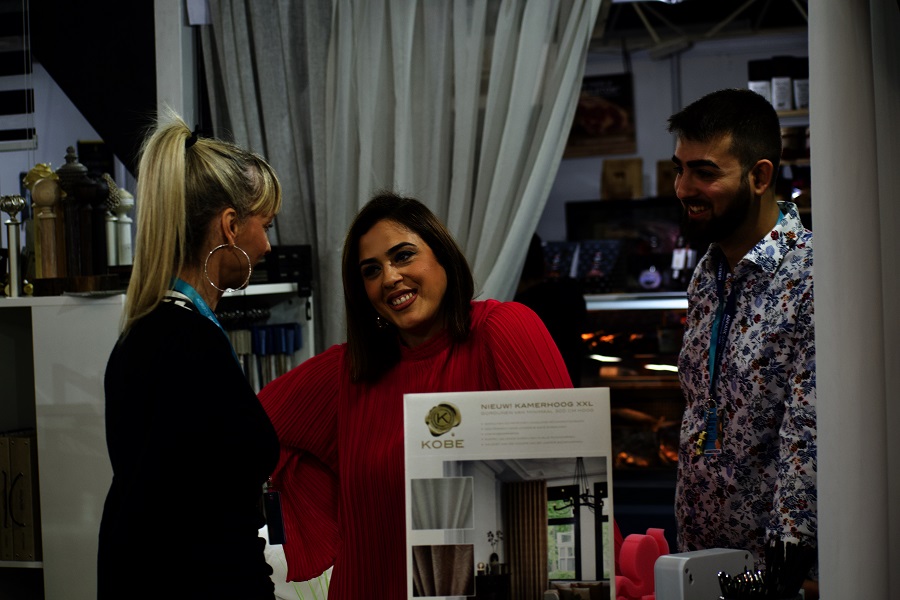
2. What did your family and community back home think of your decision at the time?
I'm glad this wasn't a pressure point since it would have been a lot more difficult on me if I had serious concerns from my family and friends back home. They fully supported my decision but they knew it could be thought of as "controversial" and most of our talks before I first left to study and work were about how I am planning to stay for a bit longer to see how I'd do and to explore my job opportunities much better than I could back home.

3. Where did you get your information about the realities of Croatia prior to coming?
Well, I've kept up with the news, but you never fully understand until you feel it on your own skin, I've heard stories from family and friends about the good and the bad, but my own experience has taught me most of all.
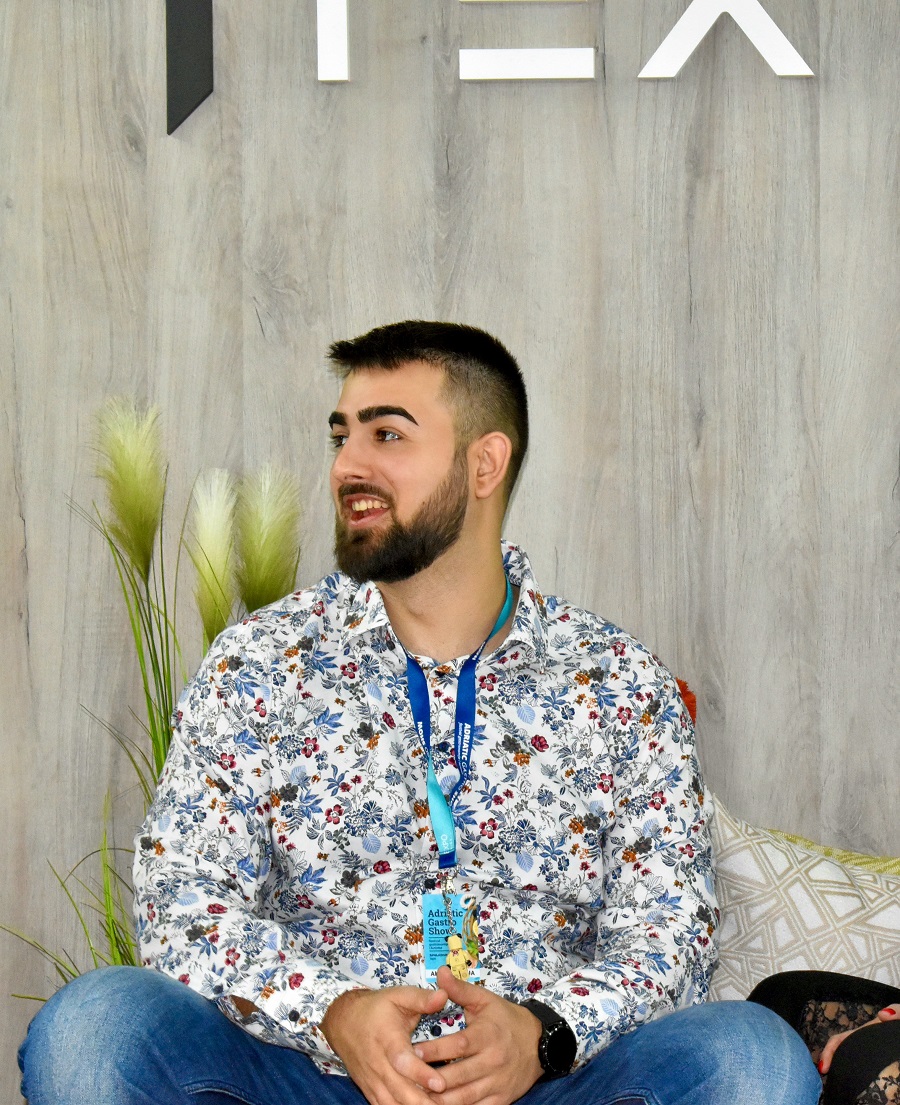
4. What were you most nervous about making the switch? What was your biggest fear, and how was the reality of what you found?
My biggest fear was being stuck, both psychologically, career-wise, and financially. The last thing you want to do as a 20-year-old is to get stuck in a job, city, or debt you really don't want to be in, so I guess running away from that kept me working harder. Reality is often more boring than you think, the fun lies in how you deal with it. Yes, the money is bad, yes I can't buy a house in Split, yes I probably am more limited in traveling, but at least I am home, I can work with that. I fought more than I thought I would for my car, for my hobbies, and for my future, money is a struggle, but it isn't a priority anymore. I wish I knew this before, but people always fully live with however much they are given, I've learned of families living on 1000 Euro (8000kn) a month who are happier than I am. Living in England provided a perspective of people who had more money than they needed and were extremely unhappy. This has helped my mentality a lot. The fear of my career failing is unfortunately still with me, but more on that in the next chapters.
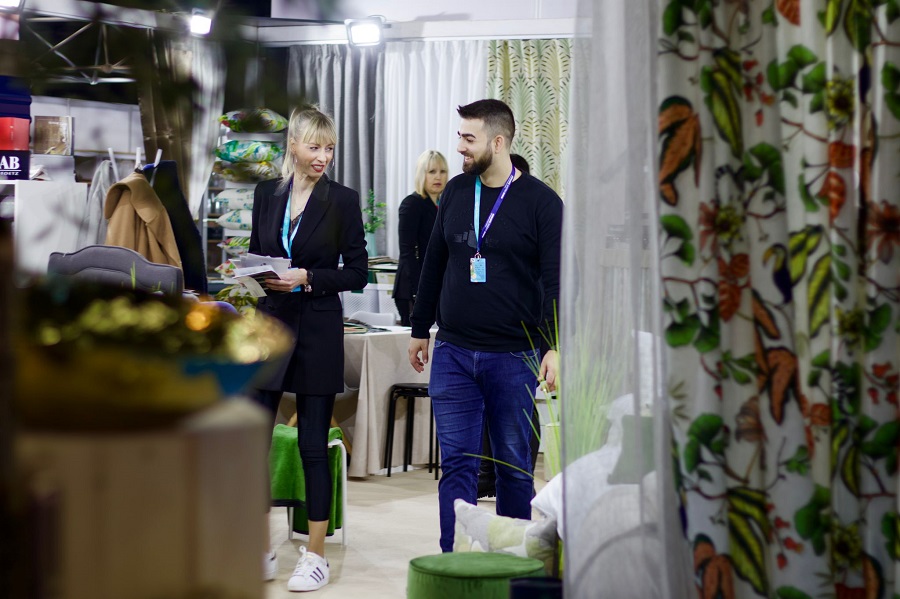
5. Think back to the time before you arrived. What were your perceptions about Croatia and how were they different from the reality you encountered?
Prepare for the worst and hope for the best, a cheesy line, but it did do wonders for me. I just expected I will have no car, no good job, and no opportunity to move out and work from there. That pretty much happened in the beginning, I was refused in loads of hotels I wanted to start, and due to my lack of experience, I worked as an assistant manager (the guy who does everything other people don't want to do) in Svpetrvs Resort Village to start and everything was as I expected, I drove my grandma's old car, my wage was around Net 6000kn + overtime, and was staying in a worker's accommodation. Following that summer I decided that try to use my book knowledge (while I still had it) and to work on some projects of my own, my father was a director of a Textile company that I didn't really care for much... but it did give me something to work off, I knew what I liked, which was design and marketing, everything colorful, so I started to work on a webshop and modernization project to make something I liked out of something I had no interest in. I have been working on this for the past two years while helping out my father "in return". Croatia definitely didn't help with my decision, I don't have any good courses to attend for my development, little to no financial help for new entrepreneurs, the competition is behind and selling usually with traditional marketing, and huge companies with millions in marketing budget are running rampant. So I feel it's kind of me against the world, but, lucky for me, this is exactly how I already felt moving to a different country with no one I knew, so I guess in a weird way, I was experienced in this situation.
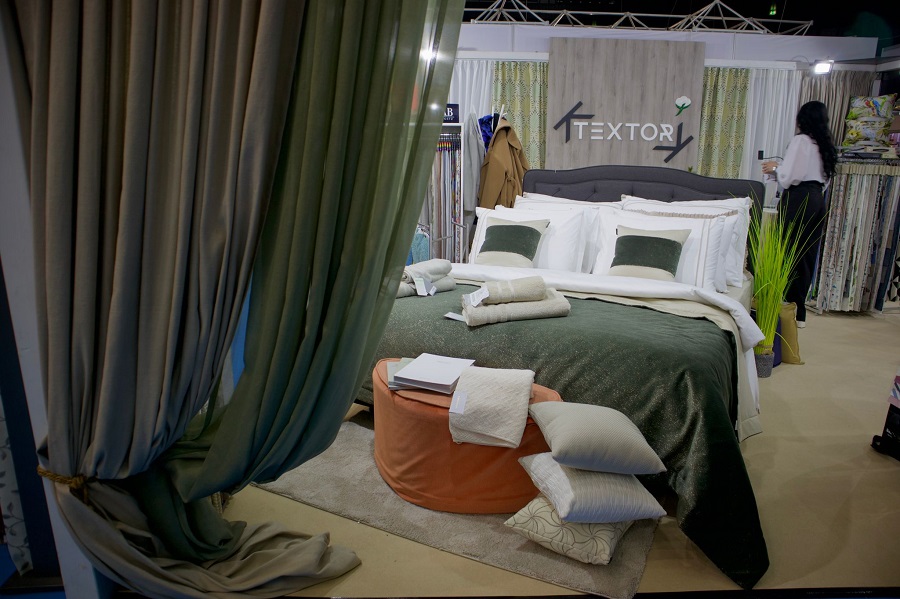
6. You are still here, so obviously the pros outweigh the cons. Tell us about some of the things that you love about being in Croatia, as well as some of the things you don't like.
The people and the beauty of the country versus everything else, the medical, public transportation, political, and education departments are horrid, almost laughably so. As a recent student myself, I feel that no student should feel this lost after finishing University as much as they do here, the path of a young person in Croatia from the beginning of their education to the end leaves a lot to desire. And especially in Split, starting a family is so financially damning that I am surprised so many decided to go for it anyways, a square meter in Split is getting up to 4000 Euro average in the next 5 years, not even mentioning the lack of support from Croatia for young families. I have worked on obtaining an APN Loan for "young families" and honestly I had more trouble with that than with actually getting enough money for it. The only thing I can say to young people is good luck and that there is a light at the end of the tunnel.
Still, it always helps to put things in perspective; I still think it is one of the greatest countries to live in, people do fight for it, and I am not the first one to bring out these statements, which makes me happy, the people do have a big heart but it will take more than that to fix the state, it does give hope though.

7. What advice do you have for others thinking about making the move from the diaspora?
I think they know as much as I do, especially people who worked a lot in multiple countries, it's all about balance. What makes you happy? What is your goal in life? I know these are difficult questions, but living in certain countries pushes you towards different goals. I've met people who live their hobbies and moved to countries where that hobby is highly developed, I know people who are very attached to their family, so they go where they go, who are workaholics and moved to huge cities with great opportunities. I think those differences are beautiful. If Croatia can offer you a solution to your goals/happiness try it out, you people in the diaspora are more flexible by nature so use that flexibility to try more than one country if you already didn't do so, more points of view often point to a more precise answer. Croatia isn't a wonderland and so aren't the countries you live in, but trying more than 2-3 countries is the best advice I can give you for your long-term living decisions.
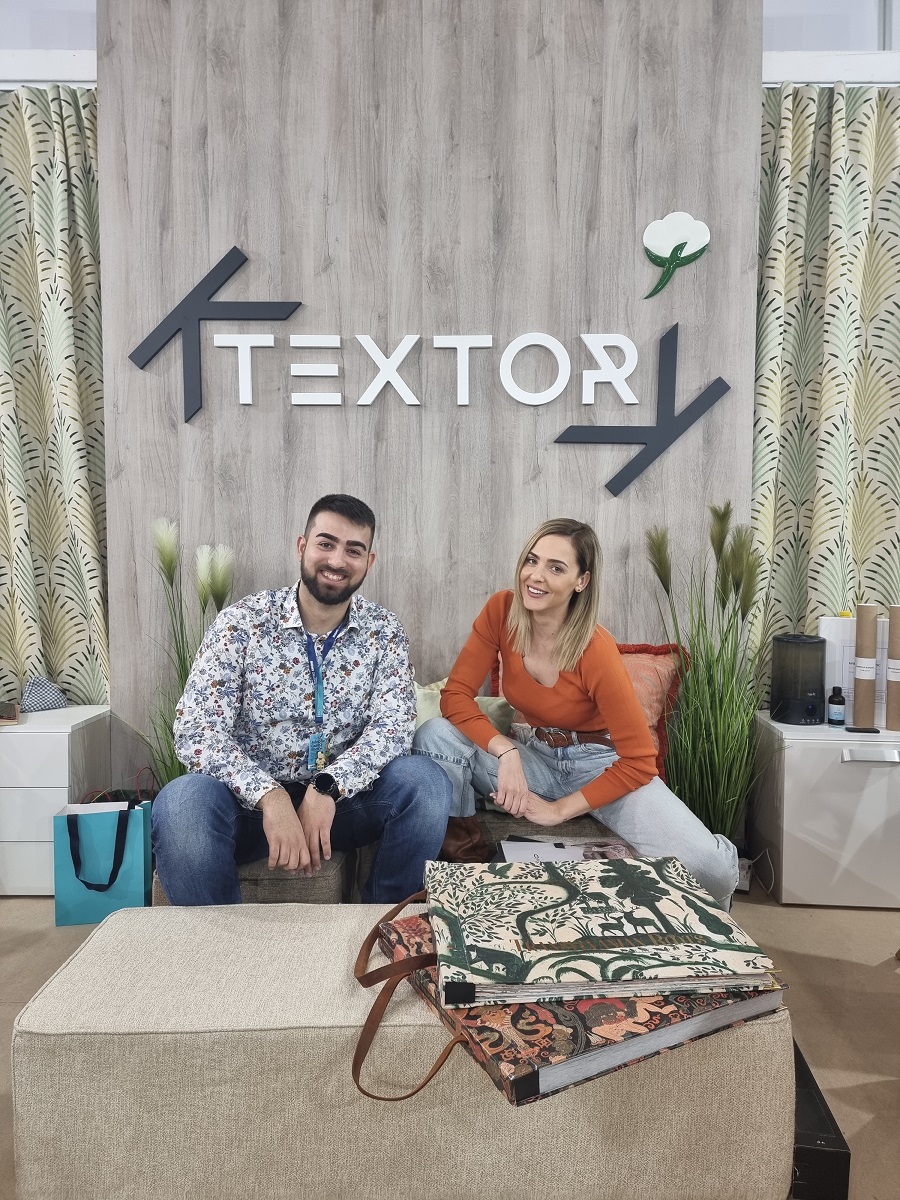
8. How do you think Croatia can better assist those who are looking to return to the Homeland?
I think safety nets are a very important missing part of Croatia, you don't have a safety net if your business starts failing, if you need medical help, if you have special needs, if you end up homeless, if you failed the schooling system, there are no structured and developed ways to have people bounce back from situations that can happen to most. For the people moving back, I'd say the laws around Croatian entrepreneurs from abroad wanting to move their HQ back home should be highly supported (even fully funded), or on the other hand, if you can prove to be an asset to the country (highly performing worker) you should be rewarded for staying by being offered bonuses from a government level. But none of this can happen while the top of the state is ready to exploit these opportunities as quickly as they can. So I'd say this has to be done very transparently and maybe even from a government-funded private organization to help with that.
****
Thanks Toni, and good luck with the launch of Textor.hr
You can follow more stories in the Croatian Returnee Reflections series in our dedicated TCN section.
Would you like your returnee story - positive or negative - to be featured in this series? Contact This email address is being protected from spambots. You need JavaScript enabled to view it. Subject Returnee.
****
What is it like to live in Croatia? An expat for 20 years, you can follow my series, 20 Ways Croatia Changed Me in 20 Years, starting at the beginning - Business and Dalmatia.
Follow Paul Bradbury on LinkedIn.
Croatia, a Survival Kit for Foreigners will be out by Christmas. If you would like to reserve a copy, email This email address is being protected from spambots. You need JavaScript enabled to view it. Subject 20 Years Book
Croatian Danube Region Returnees' Association Founded
ZAGREB, 20 June, 2021 - The Croatian Danube Region Returnees' Association (ZPHP), established in Vukovar on Saturday, will prioritise the prosecution of war crimes and solving the border and war damage issues.
The ZPHP was established by the returnees' associations of Vukovar-Srijem and Osijek-Baranja counties.
A declaration on Croatian returnees' rights and legitimate expectations was adopted at the founding assembly, the ZPHP said on Sunday.
With the declaration, the ZPHP encourages relevant institutions and the government to consistently apply the international agreements Croatia signed with the former Federal Republic of Yugoslavia and the Eastern Slavonia, Baranja and Western Srijem Agreement which regulate the right to compensation for war damage to all victims.
In doing so, the ZPHP referred to a United Nations Compensation Commission decision of 24 January 1992 on the war damage estimated in the Iraq-Kuwait war.
The ZPHP appealed to the Foreign Ministry to start negotiations with Croatia's neighbours, notably Serbia, on the border issue, starting from the Badinter Commission Conclusion of 1991.
The ZPHP called for intensifying efforts to trace persons gone missing in the Homeland War and launching investigations and the prosecution of those responsible for war crimes.
For more news about Croatia, CLICK HERE.
Croatia to USA and Back: Marin Bek Reflects on Success
Marin Bek, electrical engineer and co-founder of Ascalia and Kraken Systems, reflects on his life and success for Generacija NOW, a Hrvatski telekom project, in the form of a recent letter to his younger self. After graduating from FER (University of Zagreb, Faculty of Electrical Engineering and Computing), he moved to America and found a job there, but eventually returned to Čakovec, Croatia. Today, at age 33, he runs two very successful companies.
When he was a kid in elementary school, he was dismantling TVs and burning things. And it was obvious to everyone that he wouldn’t study history but something STEM-related (Science, Technology, Engineering, Mathematics). He often went cycling with his mom, and while they rode together, she tried to figure out what he wanted to do with his life. He entered eighth grade and he told her that he wanted to be a programmer and work in California. Then he completed his degree in electrical engineering and computer science and lived in California for a while. After a few years, he returned from America to Čakovec, Croatia and started an IT company and later a tech startup there. It might have seemed like an odd path to his peers, but he knew that he had made the right decision because it is not important where you work in IT, but the kind of work you do.
Computer Whiz
Everyone in elementary school was interested in technology, but when he chose a high school, he encountered prejudice for the first time. He didn’t want to enroll in high school and chose the technical middle school in Čakovec instead, and since that school was not at its best, his former professors slandered him. They also summoned his mom to school and recommended that she take him out of technical school and enroll him in high school. And then his cousin Siniša, who had graduated from FER and the technical school in Varaždin, advised Marin’s mother to allow Marin to study what he wanted. Fortunately, she understood and gave him that choice.
The technical middle school was too easy for him. He was 16 years old, and advanced to the second level. Everything went smoothly, even though he wasn’t learning anything, and that's how it remained until he enrolled in FER. However, he found math so difficult there that he nearly lost a year and almost dropped out of college; but he advanced (barely). It took him some time to get used to the fact that things were not as simple as they were in high school, and he would have to study harder.
Working Full-time in College
He started working full time at Bosch during his second semester of college so that he could stay in Zagreb. He skipped typical student life and extended his studies to six and a half years. After working at Bosch for a few years, he had had enough of small programming jobs and he quit. Then he started working for the Austrian company AVL, and stayed there until leaving for America.
In the summer before his third year of college, he took a bus from Zadar to Čakovec. Among the documentaries shown during the bus ride was one about underwater robots exploring the Titanic. Seeing this encouraged him to enroll in a seminar on electrical engineering and the design of autonomous robots. He enjoyed this seminar and his professors persuaded him to switch from computers to electronics.
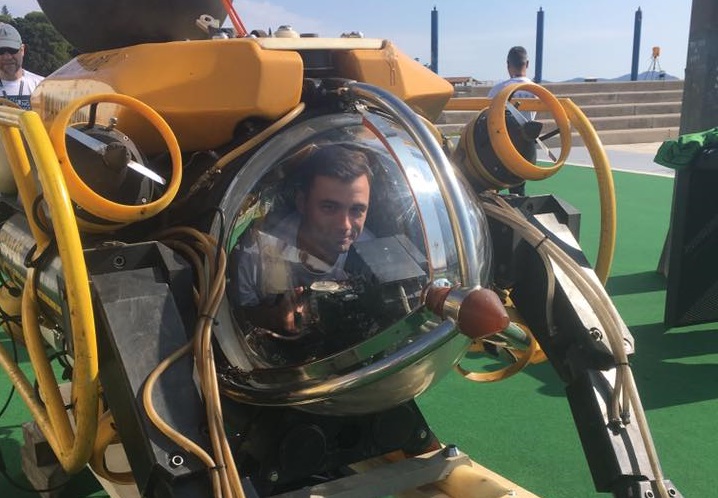
Autonomous Underwater Diver
He remained at AVL and his seminar paper turned into a graduate thesis. Then he made his own autonomous underwater diver, which was like a small underwater drone. Shortly before graduation, FER gave a lecture on startups, which still seemed like an abstract term back then. After that lecture, he spoke to the lecturer and Vladimir de Franceschi, a startup lawyer who worked in Silicon Valley, and told them about his autonomous diver. The lawyer like what he heard and suggested that he apply for the Startup Accelerator Program at the US-based Founder Institute in Zagreb, and later helped him with his startup in San Francisco.
After graduation he continued working at AVL. He wanted to enroll in the Founder Institute's American Startup Accelerator Program but needed an investment of 3000 HRK, which he didn’t have. His grandmother had a stroke and he helped pay for her care. Then his mother became ill and he looked after her as well. After discussing options with friends, his cousin Siniša lent him the money which was a major turning point. In Zagreb, he became familiar with the startup culture through the accelerator program.
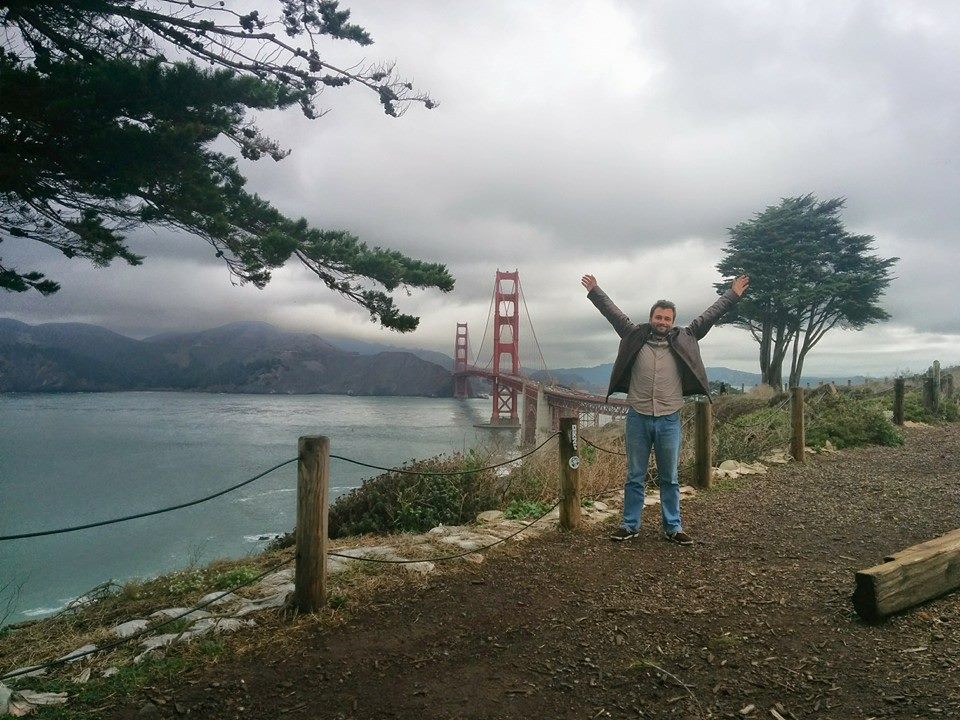
From Croatia to San Francisco
One afternoon in Čakovec in the winter of 2012, he cut off part of his thumb above the bone while splitting firewood for his mother. They saved his thumb and the three months of sick leave turned out to be a positive thing. During his time at home he realized that it was better to work alone than in an office, and started thinking about moving to San Francisco. He founded his first startup while still in Zagreb, and soon found a job online at the Nextuser startup so that he could pay rent, food and finance his own project. Many of his peers warned him of the risk of quitting a job at a well-off Austrian company to launch a startup with someone that he had met on the Internet, but he believed it would pay off in the end.
He enjoyed San Francisco, and like everyone else, he juggled several jobs while developing his startup. It was entirely commonplace there to be sitting in a cafe and have a waiter share an idea for a startup. He tried to get involved with marine technology and underwater drones but couldn’t obtain financing. Six and a half years later, he realizes that his idea was ahead of its time, and making it happen would have been extraordinarily expensive.
His project eventually failed, and he ran out of money, but quickly connected with people who would play a key role in his future. At Nextuser he had advanced from IT developer to CTO, and became involved with finding investors, which enhanced his knowledge and pool of acquaintances. However, he wanted to return to Croatia for his mom's sake and didn’t want to get stuck in America forever. In 2013, he and his friend and colleague Dean Strbad launched an IT company called Kraken Systems which dealt with big data in Čakovec. For a while he lived on the Čakovec-San Francisco route. After two and a half years, he left Silicon Valley and returned to Croatia.
Return to Croatia
When he set up Kraken Systems in Čakovec, his critics thought it strange that he had not chosen Zagreb. But his reasons were based on logic: Dean, who is also from Čakovec, worked alongside him. He also set up a home office so that he would not have to rent a space. Besides, he wanted to be closer to his mom because she was ill and needed his help. And, he didn’t allow himself to be influenced by peer pressure, because he had been shaped by American business culture, and knew that the location of his firm was completely irrelevant.
He didn’t plan on working with Croatian clients anyway, and it didn't matter to anyone in America whether the company is in Zagreb, Čakovec or Varaždin because they’d probably never heard of any of those cities. Also, in America, he never experienced prejudice regarding where he worked or where he came from. San Francisco is a melting pot, which is a positive aspect of life there. People arrive from all over the world and come from many different backgrounds.
However, after three and a half years, he decided to move the business to a more central location. His mother’s health didn't improve, and he moved to Zadar, where it became apparent that he would never return to Čakovec. As he continued to add staff; he decided to rent offices in Zagreb. However, he kept an office in Čakovec, where three people are currently working.
Kraken Systems is a now a company with close to 1 million EUR in revenue and they work with clients like Carrefour, Nestlé, Ferrer and Forbes. Four years after Kraken Systems began operations, he launched Ascalia, another tech startup, and now has over 20 employees in both companies.
He found investors from Canada and Croatia and his new startup focuses on industry and helping factories to modernize. They use the benefits of technology to reduce environmental impact and overall costs while optimizing operations. He created software and devices which allow industrial machines, made from 1979 to the present, to connect to the Internet. This allows clients to run a smart factory without a major investment. He has continued to develop this company, which is active in London, Paris and Germany. Everywhere except Croatia.
These days he travels all over the world: one day he’s in Paris, the next day in Munich or London. He also travels through America, Europe and China for work.
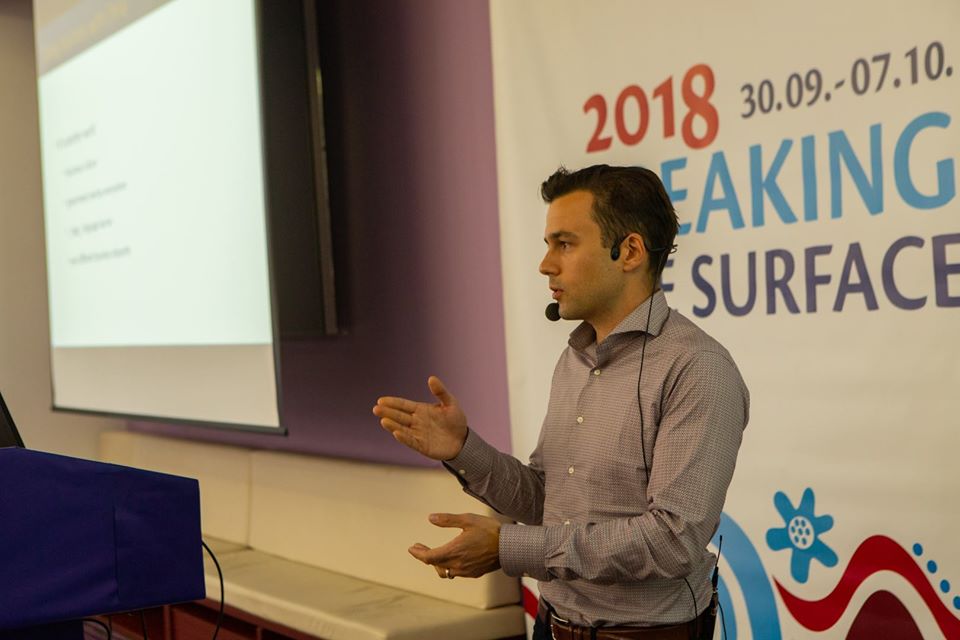
Advice to Young Entrepreneurs
His advice to young entrepreneurs? Don’t hesitate to take risks and follow your instincts without overthinking things. There will be tough times and obstacles, but be persistent and don't give up. Unfortunately, he no longer has any close relatives: mom, dad, or grandparents, so he doesn’t rule out living abroad again. Seven years ago, he was raising money for gas in Čakovec, and he never dreamed of achieving such success in his early thirties. He has no idea what his forties will bring. We’ll have to wait and see.
About Generacija NOW
Generacija NOW is a donor-sponsored program implemented by Hrvatski Telekom in partnership with the Institut za razvoj i inovativnost mladih (Institute for Youth Development and Innovation). In four years, more than HRK 4 million has been invested in preparing young people for jobs of the future, and the program works with more than 300 educational institutions across Croatia.
With the documentary “Generacija inspiracija” (Inspiration Generation), as well as a series of activities within the donation program, Hrvatski Telekom emphasizes the importance of investing in better education for all school age groups – so that they can successfully navigate life without missing out on opportunities provided by the latest technological advances. The importance of destroying preconceptions and prejudices must not be forgotten. And one of the more common preconceptions is that businesses cannot be started in smaller environments.
For more information on Croatian entrepreneurs and business in Croatia, follow our Business page here or our Made in Croatia page here.
Croatian Swimmer Returns from Studies in USA to Family Tradition
As Novac writes on the 1st of September, 2019, many customers, including both Rovinj locals and foreign tourists, who visited the Rovinj market this summer would likely have been greeted by Matea Peteh, recently married and now bearing the surname Bjelančević. Few people would expect that this former Croatian swimmer would serve them at stands in the realm of colourful vegetables.
After making a big circle around the world, she returned from where she came from, to the fertile land of Calandra, near the Palud Ornithological Park. She completed her studies in the United States, and although there were numerous opportunities for her over there, according to Novi list, Matea returned home to Croatia.
She chose the Swimming Spring League as the time to say a final goodbye to taking part in active competitions, and back in May 2013 at the Kantrida swimming pool, with the applause of a loyal audience, at the age of 23, she concluded her swimming career. Everyone expected her to stay in that field, to teach young people and train others. Matea Peteh, however, had other ideas and chose a completely different path.
''I've been everywhere, but my parents have been in agriculture for 30 years, so I felt it was time to come and help them. They've always supported me, took me to my training, helped with my schooling, and constantly invested in the farm so that they could be competitive on the market.
They also planted greenhouses with outdoor vegetable gardens, so I decided that it would be normal for me to continue with my family business, as it would be a great pity for all of that, behind which lies a lot of hard work, to just go to waste. My dad Mate and my mum Marica have been continuing to work for years when they should really be taking that time to relax a little, but alas, their work drives them on.
While I was intensely involved in swimming and studying in the US, my sister Tea was born, and she's already 14 years old. She has those sporty genes like I have, a preference for aerobic sports and the sea, so I take her for sailing. She started with an optimist, and then she won third place at the Croatian Open,'' says Peteh.
The work day at Calandra farm, where you will be greeted by several lovely dogs, chickens and other domestic animals, begins in the early morning when the fresh vegetables are harvested and transported to the market. The Peteh family has two stands, one of them is run and arranged by Matea and the other is handled by her mum, Marica. Matea is the youngest Rovinj vegetable grower, and many others of her generation have been asking her how and why she chose this job and a ''Croatian life'' after staying in the US and experiencing American opportunities.
''People have this notion that America is just a country of prosperity in itself. However, living there at an accelerated pace, young people need to quickly become independent and move for work. There is a lot to do to achieve the American dream, idealised in those cliché films. After five years, I decided that nothing could replace my peace on Calandra, even though that meant working from dawn til dusk, so much so that I didn't even manage to go for a swim this summer on the nearby, Cisterna beach, otherwise one of Rovinj's most beautiful,'' Matea continues.
''In the 15 years since I was away from Calandra, vegetable growing technology has changed so much that I have so much to master. However, my new job is a work in progress, so every day I'm learning something new, and encouragement is given to me from my dad Mate and my mum, Marica. Mostly, my dad is in charge of the field. He's constantly on the tractor and behind the miller and the grinder,'' explains Matea.
People in Rovinj are well aware of biologically produced vegetables. For example, the Calandra chard looks a bit different, there are holes in the leaves, meaning that it hasn't been treated with any pesticides. Because of this, locals don't bother with the shopping centres selling vegetables from unknown destinations, under the motto "from Croatian fields", but rather prefer to return to the markets with vegetable growers they know well. Matea says, therefore, that their business is not dependent on tourists who buy fruit and veg here and there, but on Rovinj's locals, who buy from her throughout the year.
''We're now nearing the end of the summer season, so we're already preparing for autumn and winter. We've already planted new plantations of cabbage, kale, spinach, chard, winter salads, chicory and other winter vegetables. On the market, we sell almost everything we produce, and only small quantities are bought by those from the hospitality industry. To reach the market and attract customers, you need a wide variety of vegetables and fruits so that customers can be supplied with everything they need all in one place,'' explains Matea.
It is a rare example that after such a rich sports career, such as thirty-year-old Matea, that a person returns from abroad and continues on with their Croatian family tradition. In the once economically diverse, now extremely touristy Rovinj, many young people, after completing their studies, seek opportunities in the cities where they study, especially if they're abroad. Matea Peteh has been there and done that. She knows that her place is in Calandra.
''There is a future for young people in agriculture. The market exists, it just needs to get going and especially focus on organic production. My love for the land was instilled by my father Mate and my mother Marica, there is also my sister-in-law, and after work, my husband Marko. We all know each other in our small town, so local housewives know where to come to buy fresh vegetables. Despite the summer crowds and the inability to park, our loyal customers come even though they have to walk for a long time,'' concludes Matea Peteh, the ex-swimmer turned youngest vegetable grower in Rovinj, boasting her own OPG.
Make sure to follow our dedicated lifestyle page for much more.


